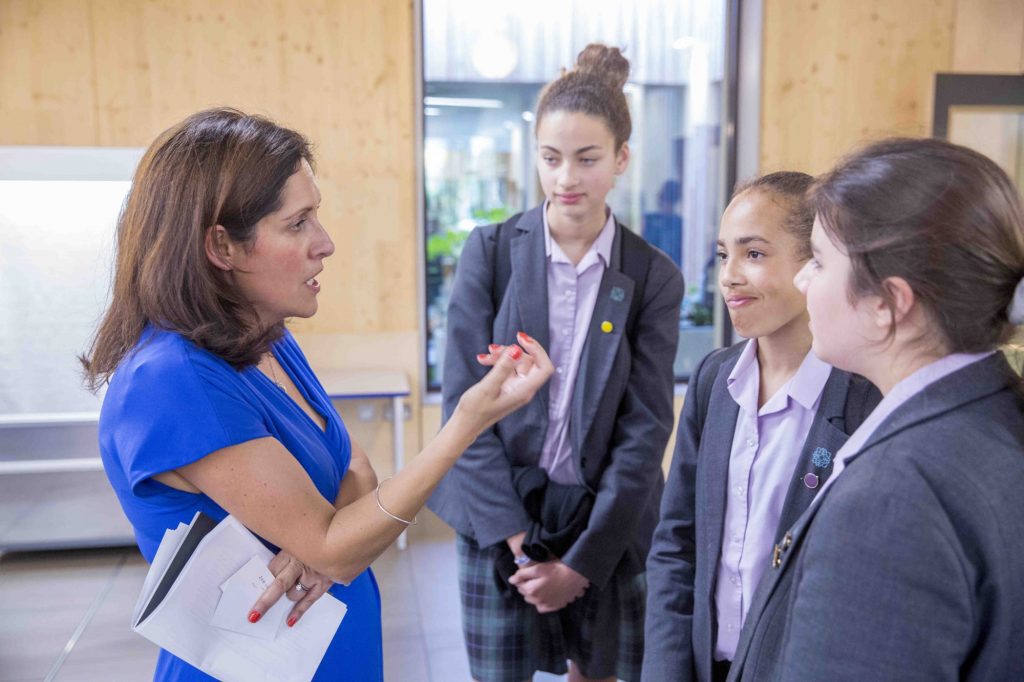Aims and Ethos
Our motto
ad sapientiam sine metu (‘towards wisdom unafraid’).
Our vision
To be unrivalled in empowering our young women to discover, nurture and project their unique identities and character.
Our purpose
To enable every girl to achieve beyond the bound of expectation on a daily basis, across the spectrum of endeavour.
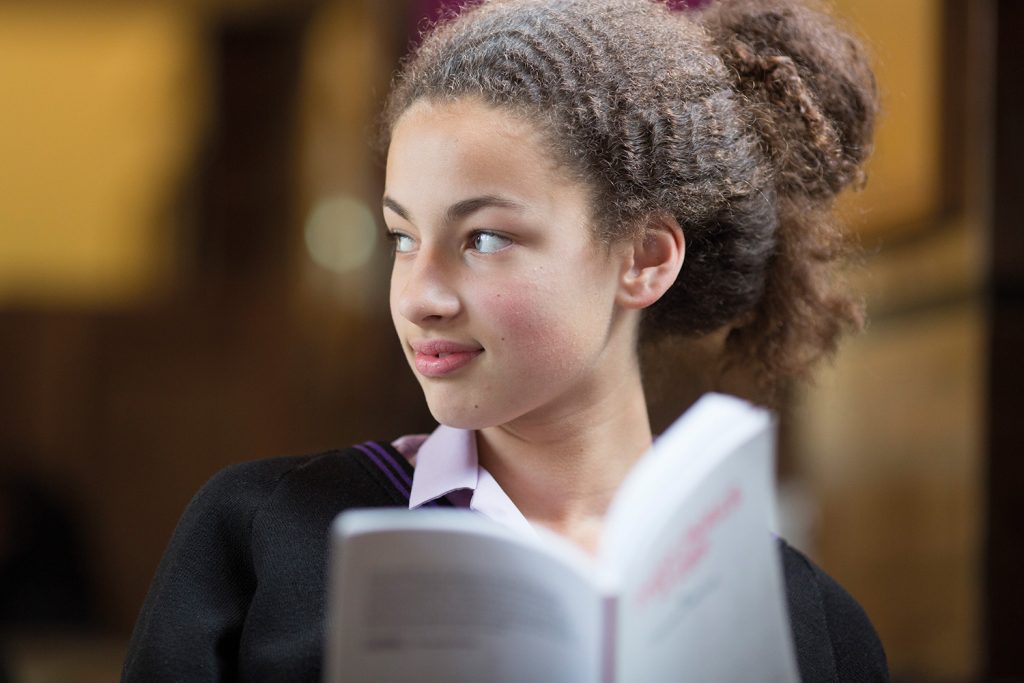
Our salient and distinctive features
We nurture, not coerce, excellence
We are a family, not a factory, school
We celebrate difference through our buzzy, diverse community, drawing strength from all that is great about London
We have an unstinting commitment to innovation; we do not stand still but are trailblazers
We draw strength from being part of the GDST family of schools, being pioneers in, and the shapers of, girls’ education.
Academic Ethos
Outperforming expectations on a daily basis
We aim to inspire achievement beyond the bounds of expectation, without compromise. Every day we coax the very best from our girls, empowering them to identify, broaden and develop their talents. We promote independence of thought, an appetite for intellectual risk, and a thirst for learning for its own sake. Motivated and confident, our pupils discover the power of civilised values and attitudes, indeed a complete philosophy of living, to guide them in their present and future lives.
Our excellent examination results, which place us in the top tier of UK independent schools, pay tribute to this rigorous focus on achievement. Likewise, recent inspection reports for both the Prep and Senior Schools are fulsome in their praise of the exceptional education we offer right across the academic spectrum.
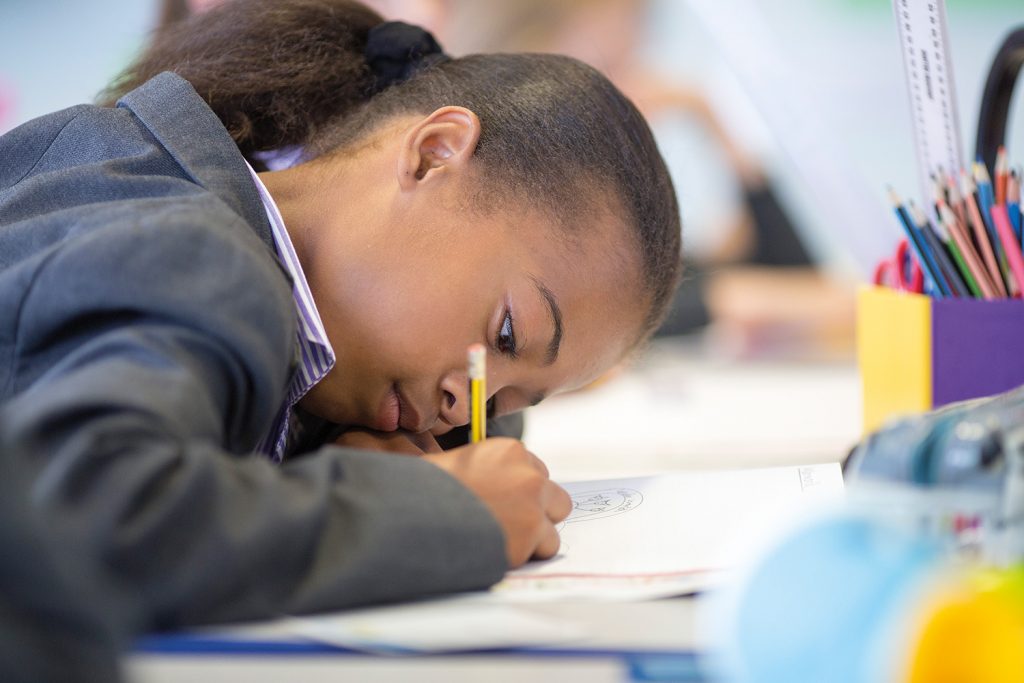
A broad, challenging and enriched curriculum
From the age of 3 to 18, our pupils enjoy a broad, challenging and enriched curriculum. Their academic success is promoted by small classes and high expectations. We ignite their curiosity with the Early Years Foundation Stage in our Nursery.
A vibrant academic programme of study, reaching far beyond the limits of the National Curriculum (for instance in offering a choice of languages such as French, Spanish, Mandarin and Latin), takes them through to Year 6.
In the Senior School, pupils embark on exciting new subjects such as Ancient Greek, and enhance their core GCSE selection with a rich choice of subjects across the disciplines.
In English and Mathematics, we offer IGCSE courses, valued by leading universities for their rigour. In addition, all pupils participate in the school’s ground-breaking enrichment programme, ‘Kinza’, which introduces them to a huge range of subjects and activities.
We’re extremely proud of our 2019 GCSE results; the highest possible score, 9 (which is considered higher than the A*, really an ‘A**’), rose by 35% and Number of grades 7-9 (A* to A**) increased 10% year on year.
In the Sixth Form, students may choose from a substantial portfolio of 23 subjects. In recent A Level results, over 89% of grades were at A*- B, and thus it is no surprise that the majority of our students progress to some of the most competitive Russell Group universities.
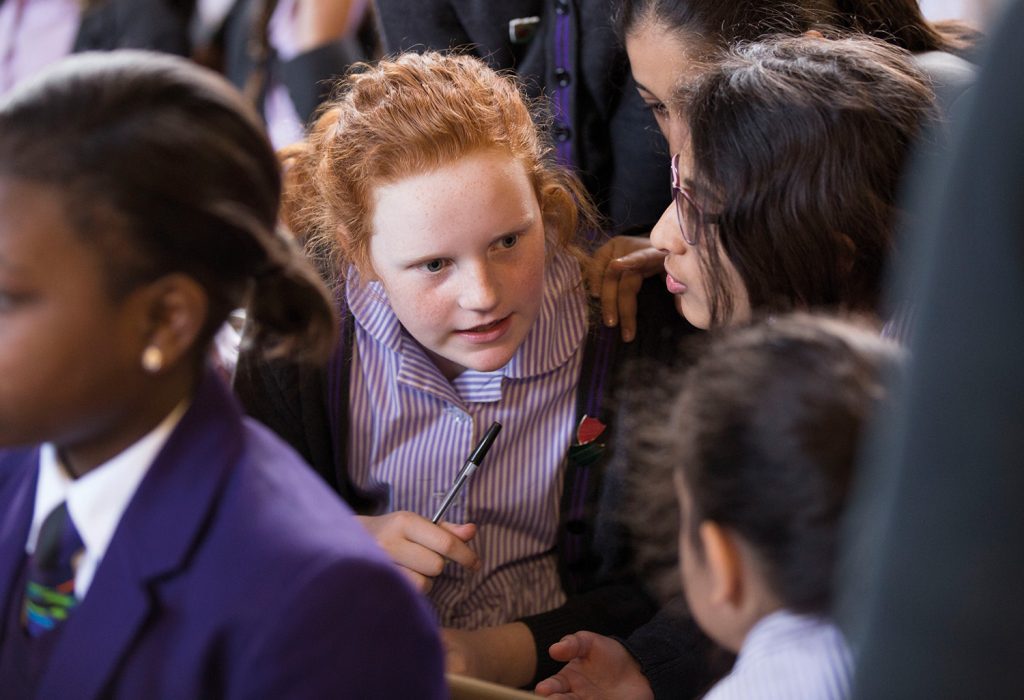
Greater heights of achievement
In every part of our school, we encourage a life-long passion for learning that inspires our pupils to reach ever greater heights of achievement. They relish the challenges placed before them, absorbing knowledge, learning life skills and growing in intellectual confidence. Our pupils thrive on success.
A framework for development
Our vision is to nurture excellence in every pupil to develop agile and creative thinkers who outperform their expectations. Streatham and Clapham High School is an inspiring, vibrant and supportive community where friendships flourish and kindness matters.
Our family ethos means that we know and value every pupil as an individual – we are a family not a factory, and we proudly celebrate our community’s diversity as a local school, drawing strength from our rich social and cultural mix.
In the spirit of our motto “Towards wisdom unafraid” we aim to inspire pupils to feel excited about learning, enriched by our wide-ranging and sometimes quirky co-curricular opportunities, grounded in a culture of excellent pastoral care where every pupil feels they belong.
We are a school of kindness, respect, integrity and compassion, where our pupils are energised by ambition and an excitement for learning, inspired by our talented and committed staff. Our expert pastoral care is intrinsic to this, so that every pupil is known and their voice is heard. As a school we take time to listen, and are supportive, clear and fair in all that we do. Our partnership with parents is crucial to our holistic approach so that together we enable every pupil to flourish.
We are experts in girls’ education, drawing strength from being a member of the GDST family of schools which are pioneers in, and shapers of, girls’ education. As a through school from 3 to 18, our pupils make friendships for life and value their connections with pupils of all ages.
Our pupils learn to face the future with curiosity and optimism and to achieve ambitiously, beyond their expectations. They mature into confident, resilient and accomplished young people, positively engaged in the world around them, richly equipped in character and mind for the challenges of their future lives, their learning and careers beyond school.
The GDST
The GDST, which has pioneered the education of girls and young women since its foundation in 1872, is the leading network of independent girls’ schools in the UK, with approximately 4,000 staff and nearly 20,000 pupils in its 23 schools and two academies throughout England and Wales. About 8% of all the girls in independent education in the UK are at GDST schools. GDST schools are non-denominational, and pupils have always been admitted irrespective of background or beliefs. All but two of the schools educate girls from the age of 3 or 4 to 18.
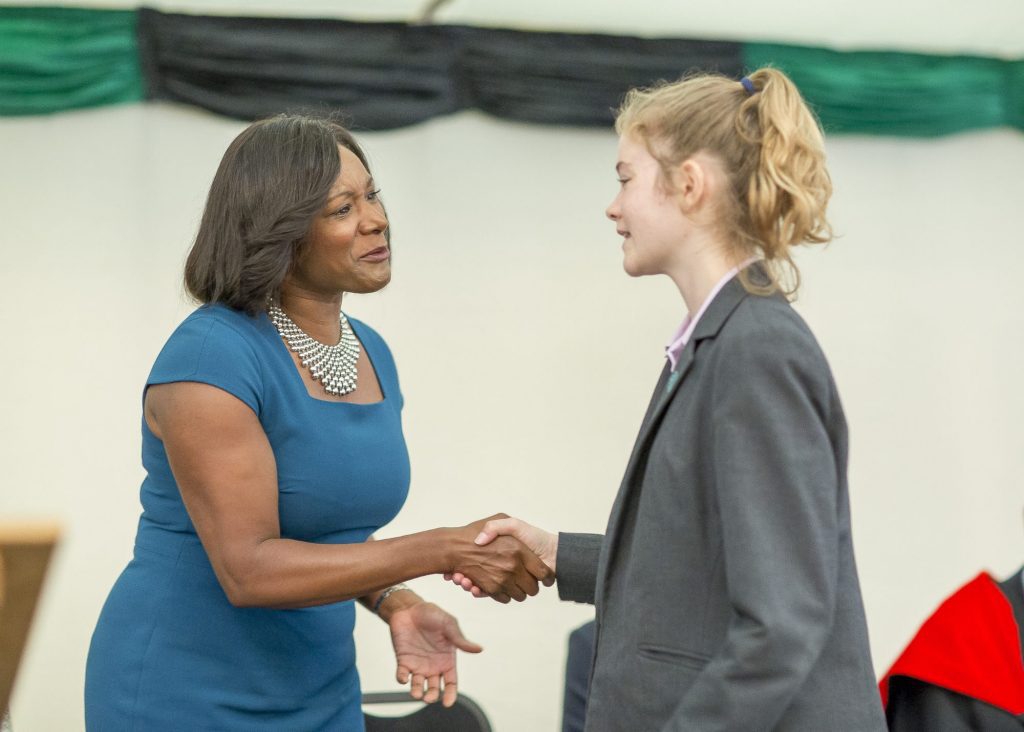
Streatham & Clapham High School is a member school of the Girls’ Day School Trust, and as such the Trust holds legal responsibility for its operations. The Chief Executive Officer of the Trust, Ms Cheryl Giovannoni, is based at GDST Head Office, 10 Bressenden Place, London SW1E 5DH (telephone: 020 7393 6666, email:info@wes.gdst.net). The Chair of the GDST council is Ms Vicky Tuck, who may be contacted via the address, telephone number and email detailed above for the GDST.
